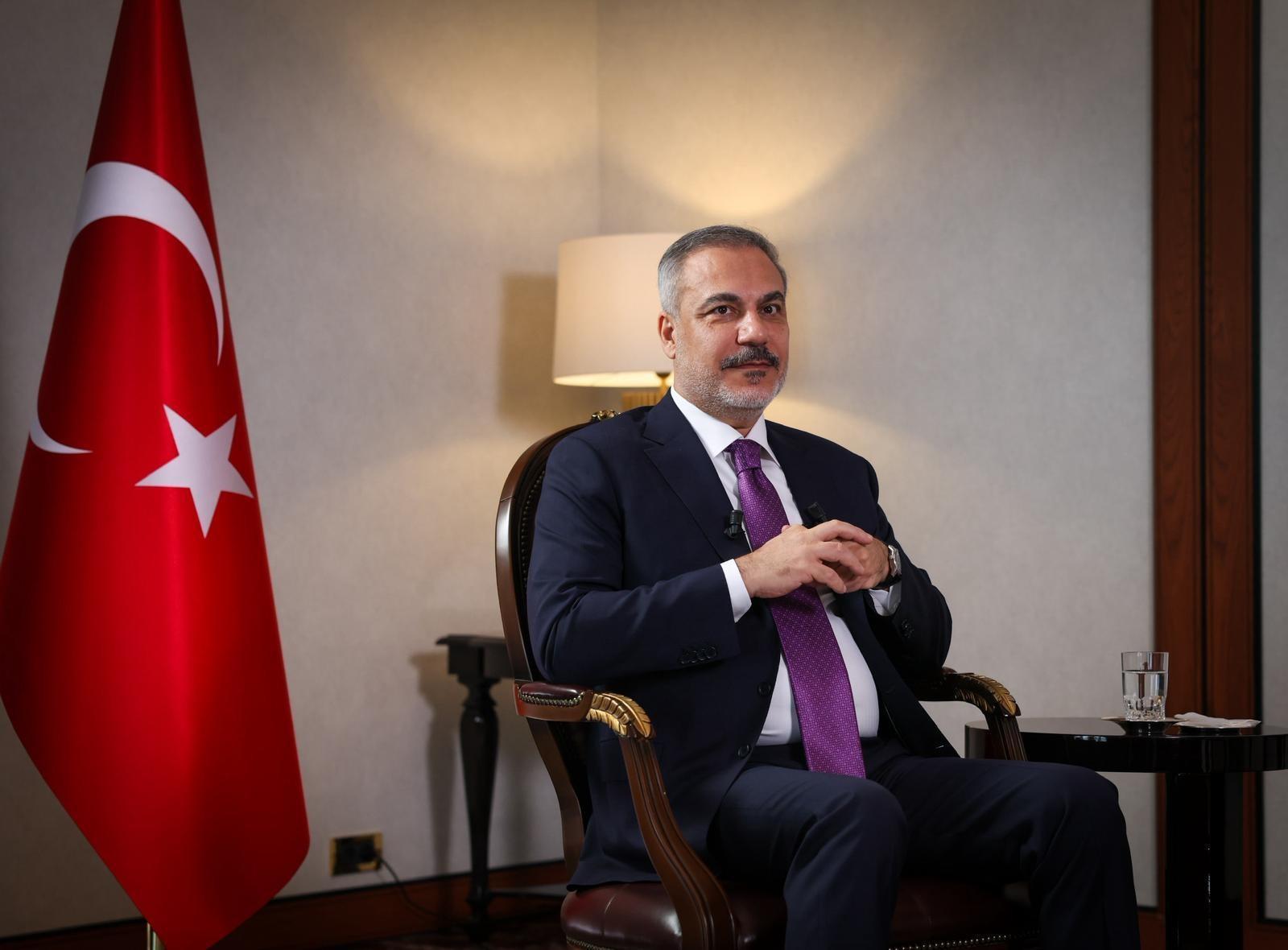
Recent developments in Israel's war on Gaza suggest the United States wields less control over Israeli policies than often perceived—and the dynamic may run the other way— Foreign Minister Hakan Fidan said Thursday.
"There has been a long-standing reality in American domestic politics regarding who controls and manages whom," Fidan told MBC MASR TV.
"Recent events have shown that the US does not have as much influence over Israel's policies as assumed; it may even be the opposite."
He referenced ongoing discussions with US President Donald Trump, which consistently center on peace in Gaza and stability in Syria.
Fidan described Israel as a persistent regional challenge since its seizure of Palestinian lands, with all neighbors backing a two-state solution along 1967 borders.
"However, Israel has never genuinely wanted a two-state solution. It has consistently pursued a policy of seizing Palestinian lands beyond the 1967 borders, using security as an excuse," he said.
This expansionism has loomed as the Islamic world's core issue for decades and now poses an open threat to the broader region, Fidan added.
The emergency Arab-Islamic summit in Doha recently spotlighted Israel's aggressive posture, he noted.
"We will continue to oppose and work against the ongoing genocide in Gaza and Israel’s attempts to annex the West Bank, and we will strive for the realization of a Palestinian state," he said.
"This is indispensable for regional peace."
Fidan called on regional states and the international community to confront Israel's expansion with firm measures, warning it draws strength from neighbors' political, economic and technological vulnerabilities.
Examples include Israel's occupation in Lebanon, presence in Syria, strikes on Iran, civilian targeting in Yemen, infrastructure destruction and the latest assault on Qatar, he said.
The recent Israeli strike on Hamas leaders in Doha "has changed many things, while mediation efforts are ongoing."
Fidan criticized global powers for stoking conflicts like Gaza and the Russia-Ukraine war rather than resolving them, pointing to shortcomings in blocs, the EU and UN.
"The structure of the UN, particularly the Security Council, seems inadequate in solving these issues. Reform of the Security Council and the UN as a whole is necessary," he said, advocating for more inclusive decision-making.
Without such changes, alternatives like BRICS, the Shanghai Cooperation Organization and ASEAN will gain traction with fresh approaches,
Fidan predicted.Arab, Islamic states ready for unified security framework.
Many members of the Organization of Islamic Cooperation and Arab League have politically matured enough to form "an integrated political system," Fidan argued, if leaders commit within a structured framework.
"All countries must trust each other. There needs to be a platform that makes this possible. Then, many economic and security issues can be built upon this."
He dismissed outdated notions of Turkish, Arab or Persian dominance as "primitive," urging cooperation over control.
"What we need is cooperation, not domination. Not ruling, but working together. Everyone’s borders are clear. Nations are clear. We respect each other."
Ties with Egypt reach 'best level in modern history'
Fidan described Türkiye-Egypt relations as hitting their strongest point in modern times, with deep people-to-people bonds now matched by elite and government-level dialogue on all fronts.
Solidarity between the two runs strong, and trade is "exceptionally good," he said, with ties progressing steadily.
Ankara and Cairo must deepen professional collaboration across sectors, Fidan said.
"I want to stress this: We need to work professionally and work hard. There is political intent and will."
Türkiye is boosting trade and political links with both Egypt and Saudi Arabia, including defense industry cooperation amid rising regional threats.
"The threats in the region are now pushing us to talk more about security and, frankly, to cooperate on this matter. We especially need to cooperate in the defense industry," Fidan said.
Talks with Egypt on defense continue, building on existing Saudi partnerships.
"Especially with Egypt and Saudi Arabia, Türkiye really needs to put the issue of common security on the table with regional countries, just as much as we do with matters of economy, trade, and technology."